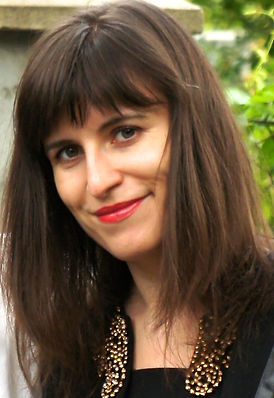oksana maksymchuk

Oksana Maksymchuk is a bilingual Ukrainian-American poet, scholar, and literary translator. Her debut English-language poetry collection Still City was published by University of Pittsburgh Press (US) and Carcanet Press (UK) and was long-listed for 2025 Griffin Poetry Prize and 2025 PEN/Voelcker Award for Poetry. Oksana’s poems appeared in The Guardian, The Irish Times, The Paris Review, Ploughshares, PN Review, The Poetry Review, and many other journals. In the Ukrainian, she is the author of poetry collections Xenia and Lovy and a recipient of Antonych and Smoloskyp prizes, two of Ukraine’s top awards for younger poets. With Max Rosochinsky, she co-edited Words for War: New Poems from Ukraine, an anthology of contemporary poetry. Oksana won first place in the Richmond Lattimore and Joseph Brodsky-Stephen Spender translation competitions and was awarded a National Endowment for the Arts Translation Fellowship, Scaglione Prize for Literary Translation from the Modern Language Association of America, Peterson Translated Book Award, and American Association for Ukrainian Studies Translation Prize. She is a co-translator of a few single-author volumes of poetry, including Furious Harvests by Alex Averbuch, The Voices of Babyn Yar by Marianna Kiyanovska, and Apricots of Donbas by Lyuba Yakimchuk. Her work has been featured on BBC Radio 3 & 4, CBC Radio, The Times, The New York Times, The Washington Post, and TEDx, among others, and her translation of Lyuba Yakimchuk's "Prayer" was performed by the author at the 2022 Grammy Awards Ceremony. Oksana holds a PhD in philosophy from Northwestern University. Most recently, she was a visiting writer in residence at the University of Chicago, University of Arkansas in Fayetteville, and the Cheuse Center for International Writers. Born and raised in Lviv, Ukraine, she has also lived in Chicago, Philadelphia, Budapest, Berlin, Warsaw, and Fayetteville, Arkansas. She is currently a Sidney Harman Writer in Residence at Baruch College/CUNY in New York.
interviews, features & Podcasts
Writer in Residence at the Institute for Advanced Study CEU in 2020/21 reflects on her work on extinction of animal species and on the role that the global pandemic has played in making people adapt and change habits and rituals surrounding their daily activities.




















